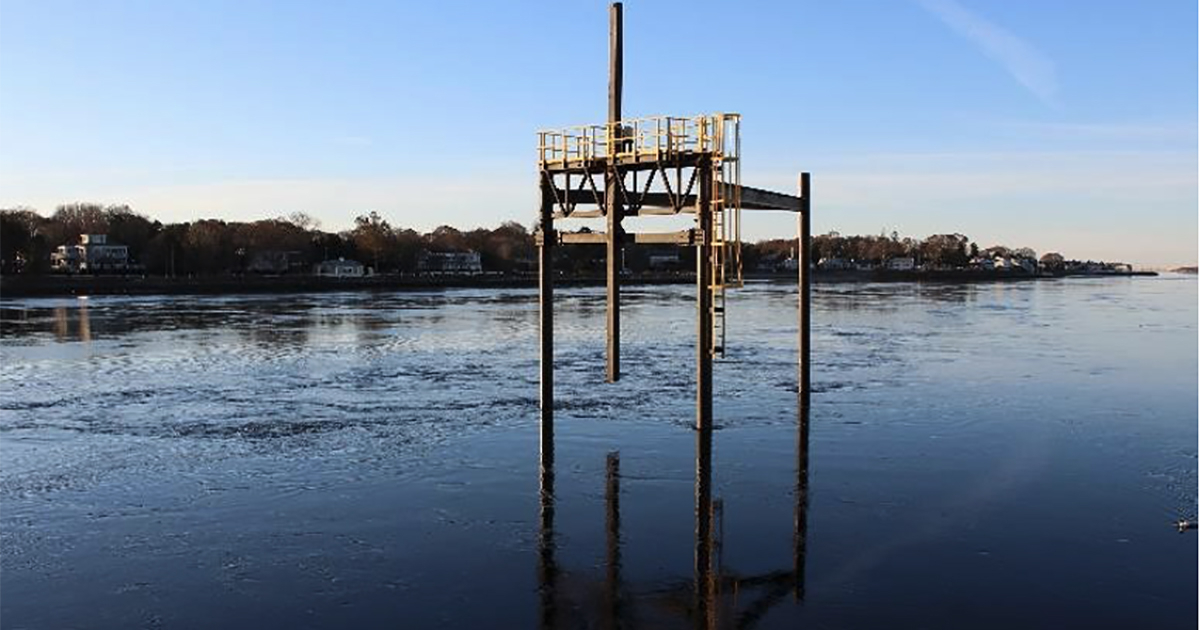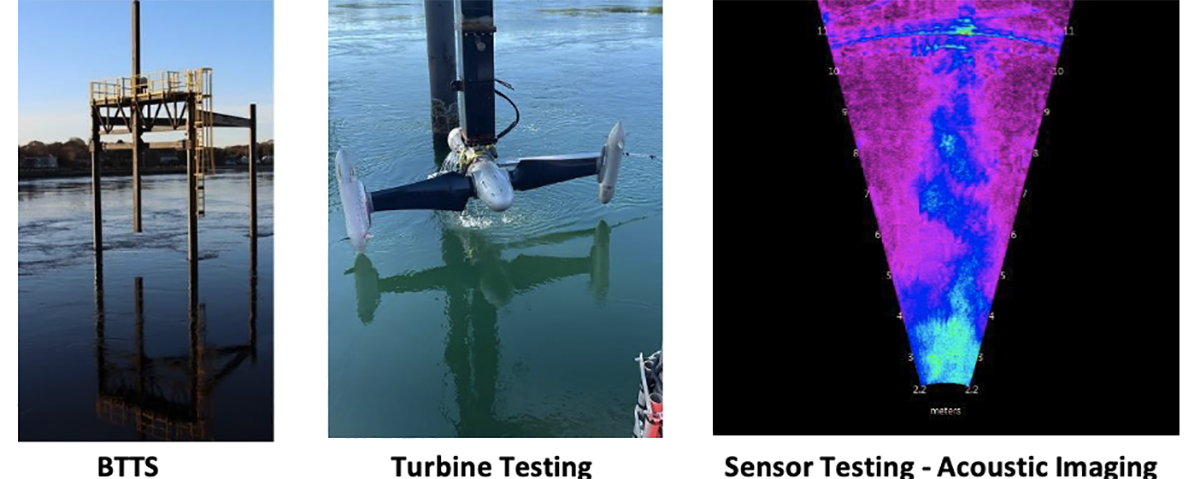Bourne Tidal Turbine Test Site Awarded FERC License; First in the US

The Marine Renewable Energy Collaborative (MRECo) has been awarded an 8-year pilot license by the Federal Energy Regulatory Commission (FERC) to test marine renewable energy- generating tidal turbines at the Bourne Tidal Test Site in Bourne, Massachusetts. The Bourne Tidal Test Site (BTTS) is the only tidal test site in the US to have obtained such a license. This license allows turbines to generate renewable electricity directly to the grid.
BTTS provides tidal turbine developers an unmatched capability for testing prototypes up to 3 meters in diameter. The FERC license will allow the test site operator, MRECo, to manage the testing of tidal turbines in the fast-moving ocean waters of the Cape Cod Canal. Aspects of the testing include turbine efficiency, generation capacity, durability, and potential environmental effects.
Developing new turbine technologies in very challenging and costly. University test tanks can only test small prototypes and components of less than one meter. Testing large devices in the ocean requires extensive permitting that is costly and time consuming. This has slowed development of new technologies. The BTTS was designed to solve this problem.
The BTTS was designed and constructed with Massachusetts Seaport Economic Council funding to address the test site shortage. It has a fixed test stand without the flow disruption resulting from testing off of barges or bulkheads. A lifting arm enables easy access for tidal turbines while the stability allows better accuracy from sensor. It is the only test site with these capabilities in the US and perhaps the world.

(Image credit: MRECo)
MRECo is a non-profit corporation dedicated to the sustainable development of ocean renewable energy. MRECo is also advancing testing of wave energy generators in Massachusetts water. It has been estimated that tidal energy could provide one tenth of the world’s electricity needs and Massachusetts waters could generate the equivalent of a nuclear power plant. Tidal energy has been shown to have minimal impact on the environment because the blades turn slowly and placed on the ocean bottom has no visible impact on coastal beaches.
John Miller, the MRECo Executive Director, noted, “To meet climate change challenges, we need all the sources of renewable energy available. Tidal energy is an important piece of the mix because it is reliable, predictable, and available along coasts where population densities are highest. New England has the intellectual capital available in its universities to lead in developing this source and BTTS provides a critical tool. Thirty years ago, Professor Gorlov from Northeastern University invented a new type of turbine with helical blades and tested it at the site where BTTS is located. That technology has been commercialized and is being deployed in Alaska and exported to Chile. It’s time for the next generation and we are ready.”
BTTS also hosts the Marine Observatory for Sensor Testing (MOST), a site that allows cost effective long term testing of ocean sensors.

